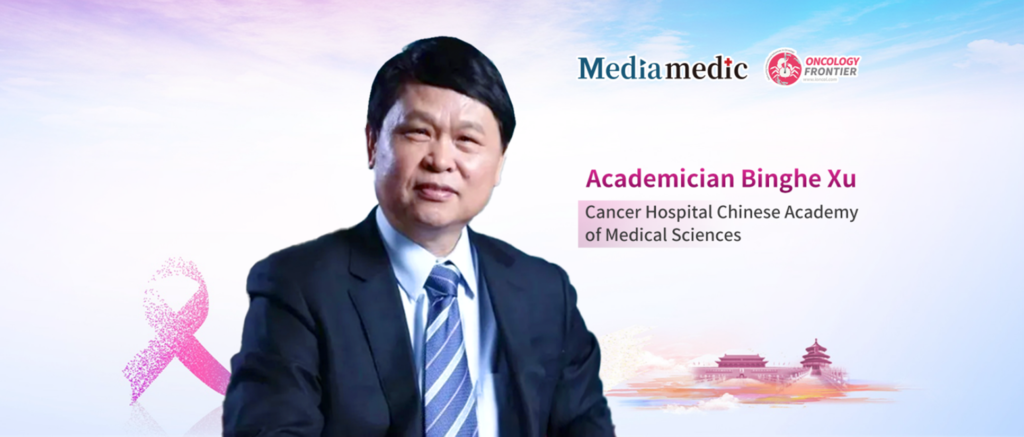
With breast cancer incidence rates on the rise globally, it has become a major health threat to women. In China, the challenge of breast cancer control is equally significant, and improving the quality of diagnosis, treatment, and survival rates for breast cancer patients has become a critical task in healthcare. International cooperation has been a driving force in advancing breast cancer clinical research worldwide. At the 2024 Breast Cancer Standardized Diagnosis, Treatment, and Quality Control Conference, Academician Binghe Xu from the Cancer Hospital Chinese Academy of Medical Sciences delivered a report on the current state and future of breast cancer clinical research in China. Oncology Frontier had the privilege of interviewing Academician Xu, who shared insights on how Chinese scholars, by participating in international multicenter clinical trials, have not only gained experience in advanced research methods and management but also earned a prominent role on the global stage, contributing significantly to new treatment options for breast cancer patients worldwide.Oncology Frontier: As the Chair of the Breast Cancer Expert Committee at the National Cancer Quality Control Center, how do you view the progress made in breast cancer treatment quality control in China, and what challenges remain?
Academician Binghe Xu: Since its inception, the Breast Cancer Expert Committee of the National Cancer Quality Control Center has made substantial advancements in breast cancer diagnosis and treatment quality control. For instance, we established national quality control standards for breast cancer, formed various specialized subgroups within the committee, including pathology and surgical groups, and designated pilot hospitals. Over the past six years, the quality of breast cancer treatment in China has improved remarkably, with more hospitals now achieving standardized and uniform care practices.
Despite these achievements, there are still challenges. Breast cancer, as a systemic disease, requires a comprehensive approach combining surgery, radiotherapy, and medical treatments. Integrating these therapies effectively to deliver standardized treatment and further improve survival rates is our current priority. Additionally, China’s five-year survival rate for breast cancer still lags behind that of developed countries. Reaching the goals of the “Healthy China 2030” initiative and aligning breast cancer survival rates with those in developed countries remains a primary focus. We have achieved standardization in major cities and large hospitals, but there is still work to be done in extending these standards to grassroots and non-specialist hospitals.
Oncology Frontier: Many of your research initiatives involve both domestic and international multicenter collaboration. What role do Chinese experts currently play in international breast cancer research, and how can we promote the clinical research of domestic innovative drugs internationally, as well as increase Chinese patient participation in international trials?
Academician Binghe Xu: China’s journey in breast cancer clinical research has evolved significantly — from participating in international multicenter studies to becoming part of the core international research community, and now to leading international multicenter studies. Initially, by participating in international research, we were able to learn advanced clinical research methodologies and management practices, which raised our standards. Subsequently, we became actively involved in the design and overall process of international clinical trials, moving from a supporting role to leading certain global or regional multicenter studies and publishing research that has influenced clinical practice.
Chinese experts are now playing increasingly important roles in international breast cancer research, shifting from “following” to “leading” in some areas. Beyond our contributions to international multicenter trials, we have also initiated several impactful regional and global studies. The growing presence of Chinese scholars presenting at international conferences, such as ASCO, ESMO, and SABCS, is a testament to our progress and influence in clinical research on innovative drugs for breast cancer. This active involvement has elevated China’s standing in international breast cancer research and brought hope and new treatment options to breast cancer patients worldwide.
To promote the clinical research of domestically developed drugs internationally and to increase Chinese patient involvement in international clinical trials, we need to take several actions: first, strengthen communication and collaboration with international peers to actively participate in international multicenter trials; second, increase investment and efforts in domestic multicenter clinical research to elevate China’s overall research capabilities; and third, focus on original research. Through these efforts, we believe that China will achieve more globally impactful research outcomes in the field of breast cancer.


